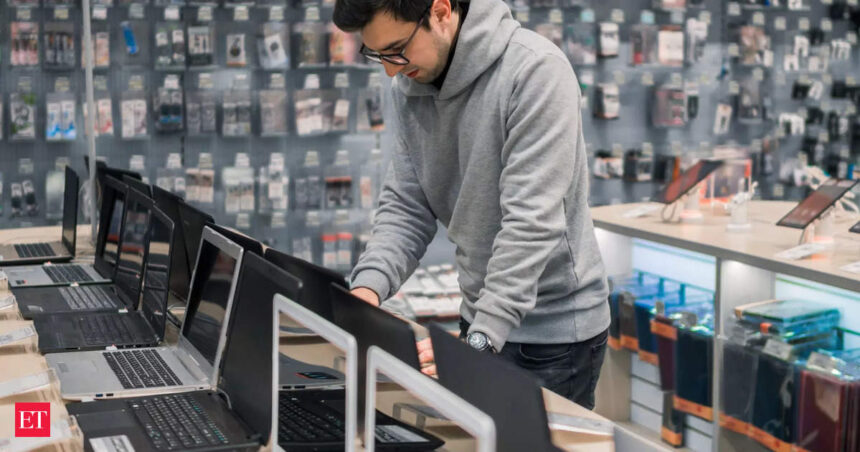India is considering imposing restrictions on imports of laptops, tablets, and personal computers starting in January, according to government sources. This move is aimed at encouraging companies like Apple to increase their domestic manufacturing operations.
If implemented, this plan could significantly impact an industry worth between $8 billion to $10 billion and potentially change the landscape of the IT hardware market in India, which currently heavily relies on imports.
A similar attempt to curb imports was abandoned last year following pushback from companies and pressure from the United States. Since then, India has been monitoring imports under a system set to expire this year and has asked companies to seek new approvals for imports in the coming year.
The government believes the industry has had sufficient time to adapt to these potential changes. Consultations with all stakeholders are expected to begin next week, and the implementation of import restrictions could be delayed if necessary.
India’s Ministry of Electronics and Information Technology (MeitY) is working on a new import authorization system that would require companies to obtain prior approvals for their imports. Currently, laptop importers can bring in devices freely after automated online registration. Leading players in the industry, such as HP, Dell, Apple, Lenovo, and Samsung, cater to two-thirds of the Indian demand through imports, with a significant portion coming from China.
To combat low-quality devices, the government is considering imposing minimum quality standards under the ‘compulsory registration order’ for laptops, notebooks, and tablets.
The federal electronics ministry did not provide a comment on this matter, while the trade ministry stated that a decision regarding the import management system would be made after consultations with the electronics ministry and other stakeholders.
This move could benefit contract manufacturers like Dixon Technologies, who have partnered with global companies like HP to produce laptops and computers in India, aiming to meet 15% of the total demand in the country.
India’s import restrictions should be based on the nation’s domestic production capacity, according to an industry source involved in the government’s discussions. The country has introduced incentives to promote domestic production, attracting participation from global firms like Acer, Dell, HP, and Lenovo.
Data shows that imports of fully assembled laptops from abroad decreased by 4% in the first five months of 2024, with companies like Lenovo and Acer increasing local assembly for entry-level laptops. India has long emphasized the importance of “trusted sources” for electronic devices, especially in light of concerns surrounding cyberattacks and data security.
In 2022, Prime Minister Narendra Modi stressed the need for reducing reliance on foreign countries for communication technology. India intends to implement mandatory testing of “essential security parameters” for all CCTV cameras starting in April 2025.










